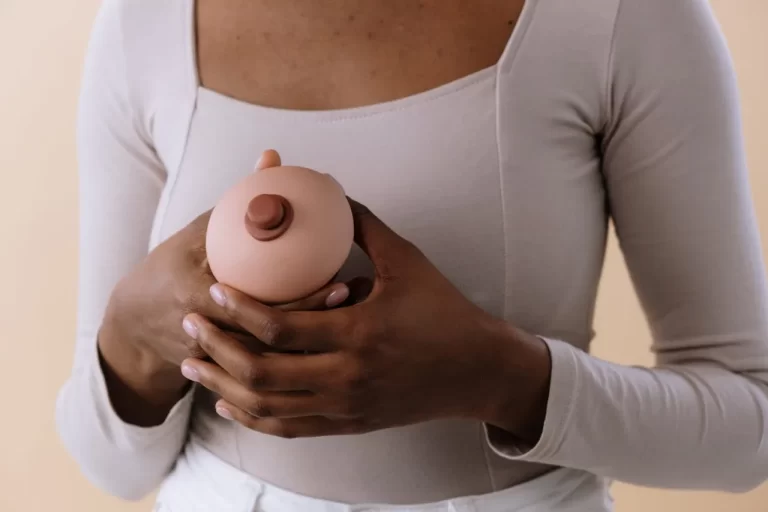Experiencing itchy nipples can be uncomfortable and concerning, but understanding the causes and finding practical remedies can help alleviate this discomfort. This guide explores common reasons for itchy nipples and offers Pro steps to address them.
1. Dry Skin
Cause: Dry skin is a common culprit behind itchy nipples. Factors like cold weather, hot showers, or harsh soaps can strip moisture from your skin.
Remedy: Moisturise regularly using a gentle, fragrance-free lotion or cream. Opt for products containing ingredients like shea butter or glycerin to lock in moisture.
Benefit: Keeping your skin hydrated helps prevent itchiness and maintains overall skin health.
2. Allergic Reactions
Cause: Allergens in laundry detergents, fabric softeners, or personal care products can trigger itchy nipples.
Remedy: Switch to hypoallergenic products. Look for labels that indicate they are free from dyes and fragrances.
Benefit: Using hypoallergenic products reduces the risk of skin irritation and allergic reactions.
3. Improperly Fitting Bras
Cause: Bras that are too tight or made from irritating materials can cause friction and itchiness.
Remedy: Ensure your bras fit well and are made from breathable, natural fabrics like cotton. Consider getting fitted by a professional.
Benefit: Wearing comfortable, well-fitting bras minimises irritation and supports breast health.
4. Hormonal Changes
Cause: Hormonal fluctuations during menstrual cycles, pregnancy, or menopause can lead to itchy nipples.
Remedy: Monitor your symptoms and identify if they correlate with hormonal changes. Speak with a healthcare professional if the itchiness persists.
Benefit: Understanding your body’s hormonal patterns can help you manage symptoms more effectively.
5. Breastfeeding
Cause: Breastfeeding can cause sore and itchy nipples due to the frequent contact and moisture.
Remedy: Use lanolin cream or nipple balms to soothe and protect your skin. Allow your nipples to air dry after feedings.
Benefit: Proper nipple care ensures comfort and promotes a positive breastfeeding experience.
6. Fungal Infections
Cause: Fungal infections like candidiasis can cause itchy nipples, especially in warm and moist aspects.
Remedy: Maintain good hygiene and keep the affected area dry. Over-the-counter antifungal creams can be helpful, but consult with a healthcare professional for persistent symptoms.
Benefit: Addressing fungal infections promptly prevents further complications and discomfort.
7. Eczema or Dermatitis
Cause: Skin problems like eczema or dermatitis can lead to itchy, inflamed nipples.
Remedy: Use gentle skincare products and avoid triggers known to exacerbate your problem. Seek advice from a healthcare professional for suitable therapies.
Benefit: Managing eczema or dermatitis reduces itchiness and improves overall skin comfort.
8. Paget’s Disease of the Breast
Cause: This rare type of breast cancer can cause symptoms like itchy, flaky, or red nipples.
Remedy: If you notice persistent changes in your nipples, such as itchiness that doesn’t resolve, seek immediate medical attention.
Benefit: Early detection of Paget’s disease is crucial for effective management and better health outcomes.
Practical Tips for Relief
1. Cold Compress: Apply a cold compress to the affected area to reduce itchiness and inflammation.
2. Avoid Scratching: Scratching can worsen irritation and lead to infection. Keep your nails trimmed and consider wearing gloves at night.
3. Wear Loose Clothing: Choose loose, breathable clothing to reduce friction and allow your skin to heal.
4. Stay Hydrated: Drink plenty of water to keep your skin hydrated from the inside out.
5. Balanced Diet: A diet rich in vitamins and minerals supports healthy skin. Include foods high in omega-3 fatty acids, antioxidants, and hydration.
Subscribe for Free for more insightful health articles tailored to your needs.
Conclusion
Itchy nipples, though often benign, can signal underlying issues that require attention. By understanding the causes and implementing practical remedies, you can alleviate discomfort and maintain breast health. Always consider consulting a healthcare professional if symptoms persist or worsen.
This blog post aims to be informational and should not replace professional medical advice. Always consult with a healthcare provider for personalised advice.
Subscribe for Free for more health tips and expert advice straight to your inbox.



